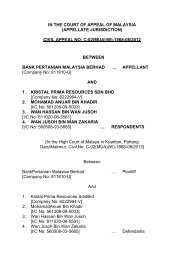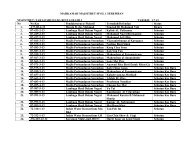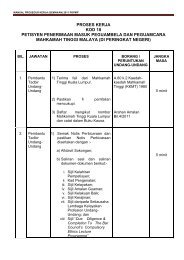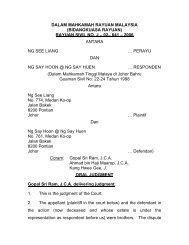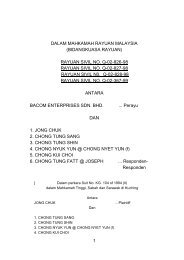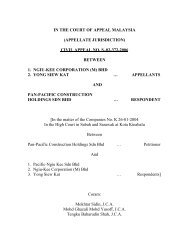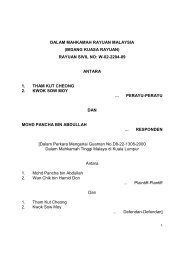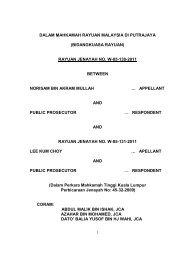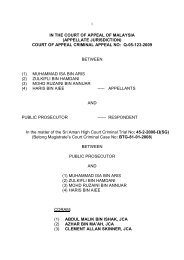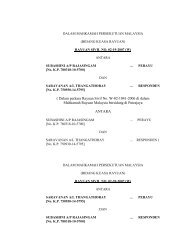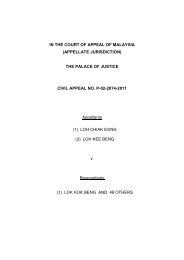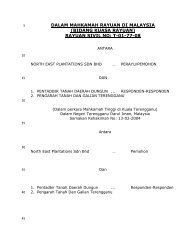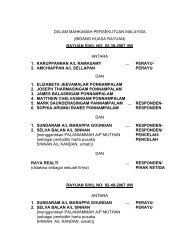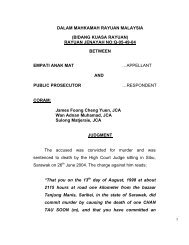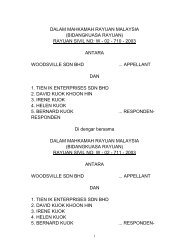DALAM MAHKAMAH RAYUAN MALAYSIA (BIDANG KUASA ...
DALAM MAHKAMAH RAYUAN MALAYSIA (BIDANG KUASA ...
DALAM MAHKAMAH RAYUAN MALAYSIA (BIDANG KUASA ...
You also want an ePaper? Increase the reach of your titles
YUMPU automatically turns print PDFs into web optimized ePapers that Google loves.
45<br />
[91] So, at least ten (10) days before the actual trial the appellant<br />
here must give notice of the alibi defence in writing to the Public<br />
Prosecutor. This was not strictly complied with by the appellant.<br />
[92] The pre-requirement of a pre-trial notice under section 402A of<br />
the CPC is mandatory and the Courts in Malaysia have no discretion<br />
whatsoever to waive such a mandatory requirement.<br />
[93] It is germane, at this juncture, to refer to the Supreme Court<br />
case of Vasan Singh v. Public Prosecutor [1989] 2 CLJ 402. There<br />
Harun Hashim, SCJ interpreted section 402A of the CPC and lucidly laid<br />
down the law pertaining to an alibi defence in these trenchant terms (see<br />
pages 404 to 406 of the report):<br />
“Section 402A was added to the Criminal Procedure Code in 1976.<br />
Until then, accused persons were free to put up an alibi defence and<br />
to call witnesses in support of the alibi thus creating an element of<br />
surprise at the trial. The object of section 402A is aimed at this<br />
mischief. It seeks to deprive accused persons of the privilege of<br />
keeping back a defence of alibi until the last moment. Clearly the<br />
object is to prevent the accused person from keeping back not<br />
merely the names of any witnesses he might call in support of the<br />
alibi, but also the fact that an alibi is to be raised.<br />
The question is, has the legislature achieved these objectives in<br />
section 402A. There is certainly now abundant authority that if<br />
witnesses are to be called in support of an alibi defence, then the<br />
requirements of a pre-trial notice must be complied with – strictly.<br />
What then is the position where the accused himself is the only<br />
witness to the alibi. It is obvious, however, that an alibi defence will<br />
not be a simple statement of: ‘I did not do it. I was not there. I was<br />
elsewhere.’ That would be evidence of a bare denial. To establish his<br />
alibi, the accused must disclose where he was at the time of the<br />
alleged offence and what he was doing. He could be travelling at the<br />
time and the only evidence he has is a ticket or an endorsement on<br />
his passport or, as here, he was in bed. That would be evidence in



